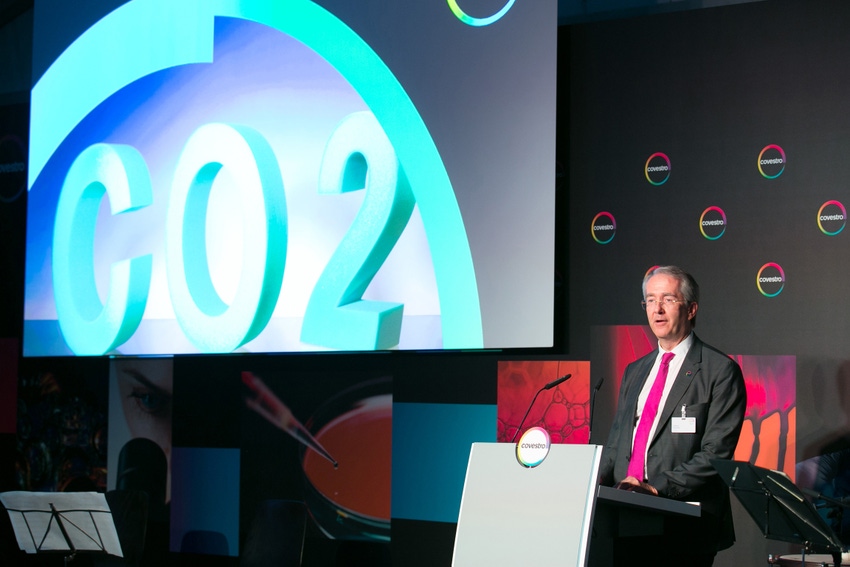Covestro opens industrial scale CO2-based polyol plant
June 18, 2016

 Covestro AG, the German manufacturer of high-tech polymers, yesterday opened a production plant to produce polycarbonate polyol from carbon dioxide (CO2) at its Dormagen site near Cologne, Germany. The company has invested some EUR 15 million in the new plant, which has an annual production capacity of 5,000 metric tons. The CO2 used is a waste product from a neighboring chemical company.
Covestro AG, the German manufacturer of high-tech polymers, yesterday opened a production plant to produce polycarbonate polyol from carbon dioxide (CO2) at its Dormagen site near Cologne, Germany. The company has invested some EUR 15 million in the new plant, which has an annual production capacity of 5,000 metric tons. The CO2 used is a waste product from a neighboring chemical company.
The new process reduces the amount of traditional oil-based raw material that is used, contributing to Covestro’s goal of finding “a solution to some of the biggest challenges of our time - finding a replacement for finite fossil resources such as oil and gas and closing material cycles,” as Covestro CEO Patrick Thomas said. Speaking at the opening event, which was attended by more than 150 guests from business, science and politics, he added: “We see ourselves as a pioneer in this area.”
Thomas Rachel, Parliamentary State Secretary from the German Federal Ministry of Education and Research said: “This method of using carbon dioxide as a raw material is an important step as we move toward a sustainable future.
“The German Federal government is promoting the use of CO2 as a raw material in order to expand the chemical industry’s raw materials basis and open new avenues to sustainability.”
The Ministry provided financial support to Covestro’s technology financially in the research and development phase.
Covestro scientists worked hand-in-hand with experts from the CAT Catalytic Center in Aachen – a research institute operated jointly with RWTH – to find the right catalyst that would make the chemical reaction with CO2 possible.
Thanks to the catalyst and the considerable energy contained in the remaining content of  petrochemical raw materials, no additional energy needs to be expended to make the low-reactivity CO2 react
petrochemical raw materials, no additional energy needs to be expended to make the low-reactivity CO2 react
The new CO2-based polyol has been engineered initially for flexible polyurethane foam intended for use in mattresses and upholstered furniture. In terms of quality, the foam achieves at least the same high standards as conventional material produced using only petrochemical raw materials.
If the new CO2-based products are received as warmly as is hoped, Covestro can envisage significant production expansion. In addition to flexible foam, the company is also working on manufacturing many other plastics with carbon dioxide. Its vision is to one day largely dispense with crude oil in plastics production.
:
About the Author(s)
You May Also Like


